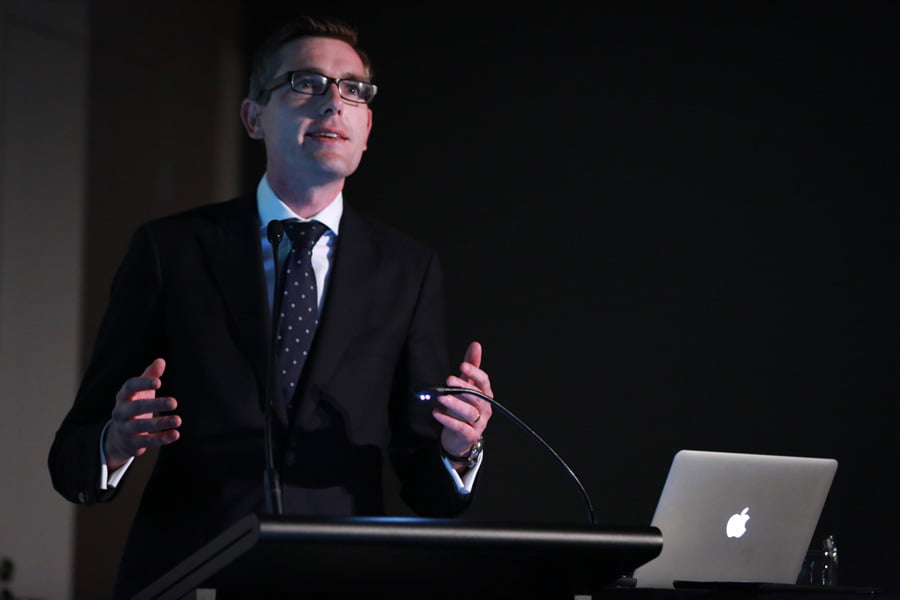New South Wales Treasurer Dominic Perrottet has confirmed the state budget, the last before NSW voters goes to the polls next March, comes in at a surplus of $3.9 billion for the current financial year and delivers a boost to digital services.
From there, it is forecast to hit an average surplus of $1.6 billion each year until 2021-22.
This year’s surplus figure has been revised up from the $3.3 billion that was announced by the state government during its half-year Budget update.

Unsurprisingly, a majority of the funds will go towards big ticket items including major transport projects, hospitals, and schools.
However, that’s not to say digital services and innovation in the state didn’t receive a nice boost.
“This budget demonstrates the great dividends across NSW when you have a strong financial management. Social outcomes and strong financial management are two of the same coin. You can’t have one without the other. We promised there will be dividends across every single community, and today is a budget that demonstrates that,” says Mr Perrottet.
The Perrottet budget emphasised how one of the state’s priorities is to see 70 percent of government transactions be carried out via digital channels by 2019.
To further this aim, there’s a budget boost of $385.7 million to drive ICT, digital and innovation under the Finance, Service and Innovation portfolio. This will come out of the allocated $2 billion the Department of Finance, Services and Innovation has received in the budget.
This capital boost comes in the form of $320 million over four years to enhance the coverage of the government radio network used by frontline emergency services, law enforcement and essential communication services. NSW Telco Authority is managing the roll out of the network for the North Coast and Greater Metro Area.
Meanwhile, $20 million will be spent over four years to fund a new central whole-of-government cyber security function to better coordinate and improve existing activities across NSW government agencies.
Still on security, out of the $3.9 billion that the NSW Police Force will receive in this year’s budget, $12 million will be invested into the state’s facial matching service to enable new face-matching technology that will increase the capability to identify suspects or victims of terrorism or other criminal activities. The program is part of the federal government’s push for a National Biometric Matching Capability.
Another $20 million will be invested to improve mobile coverage and eliminate the state’s mobile blackspots through investments in new and improved base stations. While another $9 million will upgrade broadband infrastructure to improve internet access across the state’s regional and rural areas.
Mr Perrottet said $9.3 million will be handed down to deliver digital drivers licence and photo cards to customers in the state.
There’s also a suite of measures specifically aimed to support small businesses, including progressively lifting the payroll tax threshold from the current level of $750,000 to $1 million by 2021.
The threshold will rise to $850,000 in the first year and then in $50,00 increments until it reaches $1 million.
Payroll tax is levied on all NSW businesses once their payroll exceeds a set threshold.
Mr Perrottet claimed the move to reduce the payroll tax for business will deliver a $881 million savings for business over the four years, and see 5,000 business no longer face payroll tax at all.
“We want to leave as much the hard-earned cash of our small business owners in their own pockets so they can invest in equipment and add jobs,” he said.
The 2018-19 budget also includes a significant $37 million boost to scale out the NSW government’s Easy to Do Business program aimed to slash red tape across the state. According to Perrottet, the program has so far reduced the paper trail required to open a cafe from 48 forms down to a single online portal.
Part of that funding will come from the almost $100 million the state has received from the federal government as a result of the success of the Easy to Do Business pilots.
To show further support for startups and SMEs, the state government is handing over $46 million in 2018-19 which will be divided up into a suite of Jobs for NSW grants and loan products, and facilities including the Sydney Startup Hub.
Another $30 million over four years, including $13.5 million in 2018-19 for the Skills for Business program, will be used to help small businesses upskill their workforce through training in areas like digital and financial literacy, cybersecurity and business management.
But it’s not just the current workforce getting a skills boost. The younger generation are being encouraged to engage in more creative activities including coding and performing arts outside of school through a $100 rebate. The rebate can be put towards cost of registration, participation or tuition fees. It builds on the state government’s Active Kids program announced last year
In a further effort to ensure that kids are getting the most at school, a record $15 billion will be spent on school funding this year, with the particular focus of ramping up recruitment of more teachers in NSW public schools. The government will be looking for additional teachers in disciplines of need, such as science, physics, mathematics, and technical and applied science.
Do you know more? Contact James Riley via Email.

